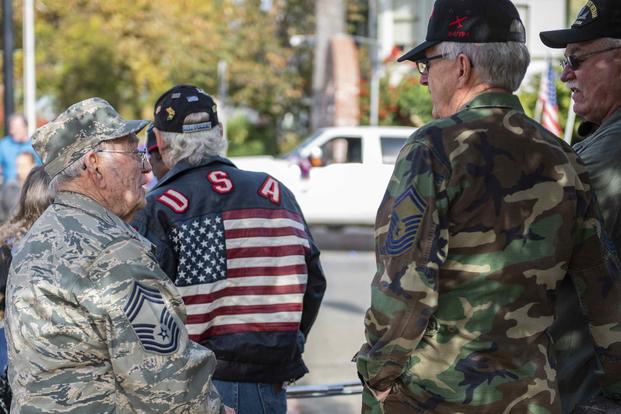The massive $330 billion coronavirus relief bill expected to be approved Wednesday by the Senate contains $19.57 billion for the Department of Veterans Affairs to ensure that veterans are receiving the care they need during the current pandemic.
According to a release from Senate Appropriations Committee Vice Chairman Sen. Patrick Leahy, D-Vermont, $15.85 billion of the VA-marked funds will go to the Veterans Health Administration to cover treatment for veterans with COVID-19 at VA hospitals, civilian urgent care clinics and emergency rooms. The funds are to be used for overtime for staff, personal protective equipment, test kits and other resources.
Another large portion of the bill -- $3.1 billion -- will go to building infrastructure for veterans care, including equipping and staffing for temporary hospitals, clinics and mobile treatment centers, and for remodeling existing facilities, including state-run veterans homes, to isolate and care for veterans with the highly contagious illness.
Funding also will go to support VA information technology networks to ensure they can handle the increase of telemedicine services needed as more routine appointments become virtual visits. The bill also includes provisions for the VA to enter agreements with telecommunications companies to give veterans better access to high-speed internet. That would allow vets to get mental health counseling remotely through telehealth during the crisis.
Related: Navy Is Hardest-Hit Service in Coronavirus Outbreak
The funding is in addition to a $150 billion coronavirus relief fund for state, local and tribal governments for additional resources for the pandemic.
Senate Minority Leader Sen. Chuck Schumer, D-New York, called the massive infusion of money into the nation's hospitals and clinics a "Marshall Plan" for the U.S. health system. In a letter sent to fellow senators early Wednesday morning, Schumer praised the negotiations that led to $150 billion being marked for the system.
"We cannot begin to heal our economy until we can turn the tide against the COVID-19 pandemic. As a result of our negotiations, the amount of funding for hospitals and medical facilities has greatly -- greatly -- increased," Schumer said.
The proposed legislation seeks to help vulnerable veterans, including those who are homeless and susceptible to contracting the coronavirus, and families and veterans receiving support services, grants or per diem, allotting $590 million for them.
"This funding will help veterans get treatment and provide support for those who are homeless or at risk of eviction," according to Leahy's release. "Funding is also included for keeping veterans within VA-run nursing homes and community living centers safe from coronavirus."
For VA health care providers working overtime, the bill temporarily lifts salary caps to ensure workers get paid for every hour worked.
The bill also:
- Ensures that home health care workers have personal protective equipment and necessary equipment to protect veterans and themselves;
- Lifts some restrictions on accessing VA health services, to include telephone enrollment and renewals and waivers for late paperwork;
- Allows veterans with limb loss who need help with their prosthetics to see a community provider during the pandemic.
- Lets VA consider providing pensions or other income-related benefits to veterans and family members, even if other emergency funding benefits place them over VA income thresholds.
As of March 24, 296 veterans under the VA health care system had tested positive for COVID-19. This includes at least 60 housed in VA hospitals, two in VA nursing homes and three in community hospitals.
Four veterans have died as a result of coronavirus infections.
Leahy said legislation is just the start of a response that will "come in phases" over the coming months.
"Today our response is providing direct assistance to the American people, injecting new resources where they are needed most, and moving our country a step closer to emerging from this crisis stronger than we were before," he said.
-- Patricia Kime can be reached at patriciankime@gmail.com.
Read More: Meet the Army Lieutenant Racing to Develop a Coronavirus Vaccine












